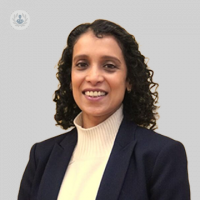Menopause and migraines: Connection and coping strategies
Written by:In her latest article of a two-part series on migraines and menopause, Dr Ashlesha Dhairyawan gives us her insights. She talks about how menopause can impact the frequency and severity of migraines in women, if hormonal changes during menopause are linked to an increase in migraines and if there are specific age groups within the menopausal phase that are more prone to migraines.

How does menopause impact the frequency and severity of migraines in women?
Menopause can cause a significant impact on the frequency and severity of migraines. We know that peak migraine prevalence occurs in women in their 40s, which is about the time that the perimenopause commonly starts. During this time, periods can also become heavier, painful and more frequent, and this is linked to migraines occurring more often.
The perimenopausal period can extend for several years until menstruation eventually stops, with the average age of menopause being around 51. This prolonged duration exposes women to the challenge of coping with severe migraines. As menstrual cycles diminish and cease, the hormonal triggers for migraines tend to improve post-menopause, potentially leading to a reduction in severity, frequency, or a complete finish. Nevertheless, women commonly find the perimenopausal phase to be a challenging period to manage.
Are hormonal changes during menopause linked to an increase in migraines?
The exact mechanism for hormonal triggers for migraine isn't fully understood, but it's thought that migraines are linked to a change in oestrogen levels.
This connection shows up at different life stages. Migraines might start during puberty because of the oestrogen rise, and it takes a while for hormone levels to settle. Some women get migraines due to a natural drop in oestrogen before periods or during the pill-free week of oral contraceptives, and they can predict when a migraine might come. Others link migraines to heavy, painful periods.
In perimenopause, when periods become irregular, more frequent, or heavier, the up-and-down oestrogen levels become a migraine trigger. A few women might start getting migraines for the first time around menopause, or they notice their migraines getting more severe and frequent. Some women also describe changes in their migraine symptoms compared to before.
Are there specific age groups within the menopausal phase more prone to migraines?
During the years leading up to menopause, known as perimenopause, women may experience more severe migraines. This tends to happen around age 40 when hormone levels start to fluctuate, particularly oestrogen.
Women who've had migraines in the past, like during their first periods, puberty, or in the week before their periods, are more likely to have migraines during menopause. For many women, migraines might get better after menopause when oestrogen fluctuations stop. However, it can take a year or two for hormones to completely settle. Some women, though, might still have migraines and hot flashes for 10 or more years after menopause.
Even after hormonal triggers calm down, other non-hormonal factors tied to lifestyle and health conditions could still be there, potentially making migraines more common after menopause.
Dr Ashlesha Dhairyawan is an esteemed menopause specialist with over 20 years of experience. You can schedule an appointment with Dr Dhairyawan on her Top Doctors profile.


